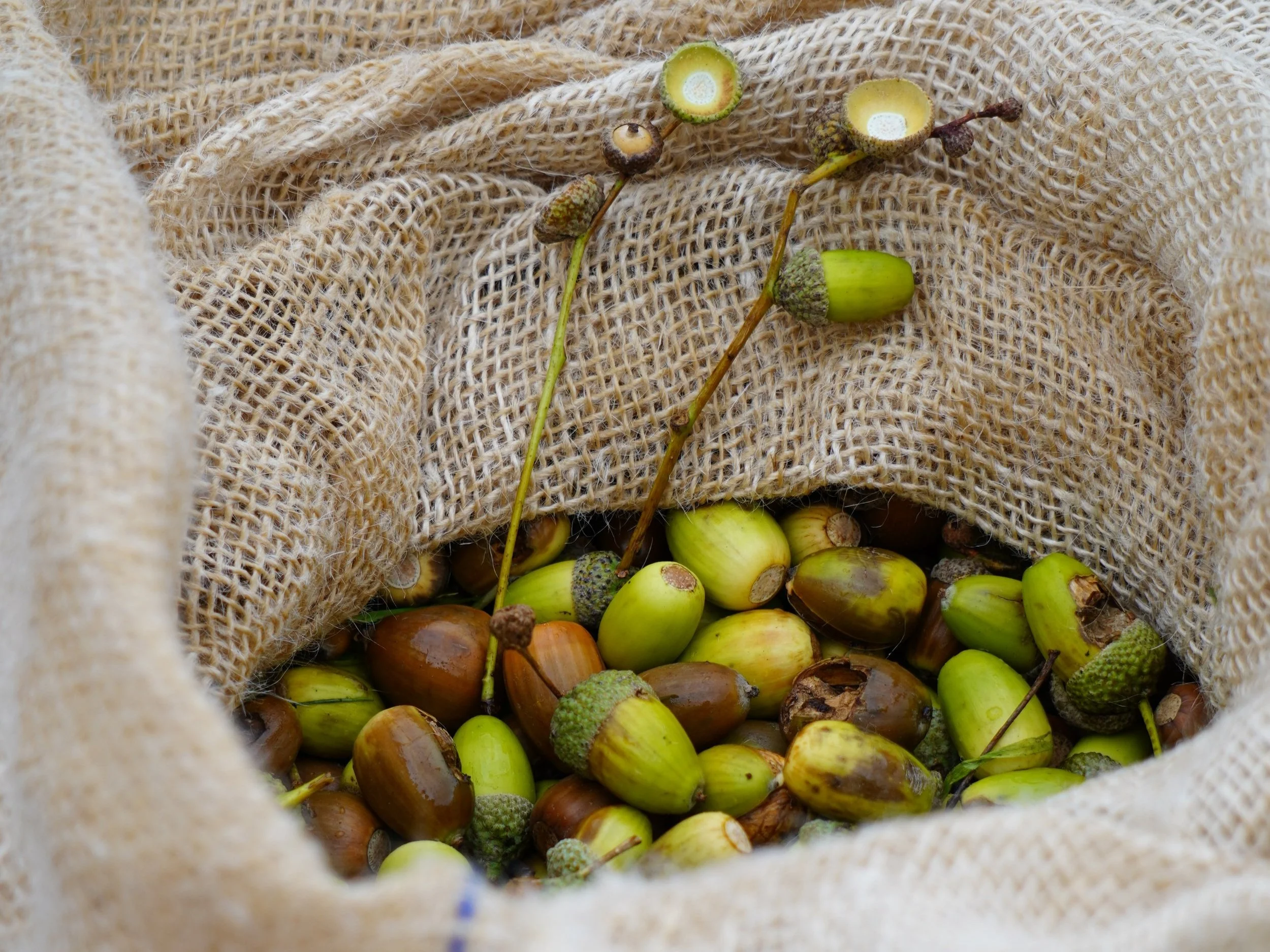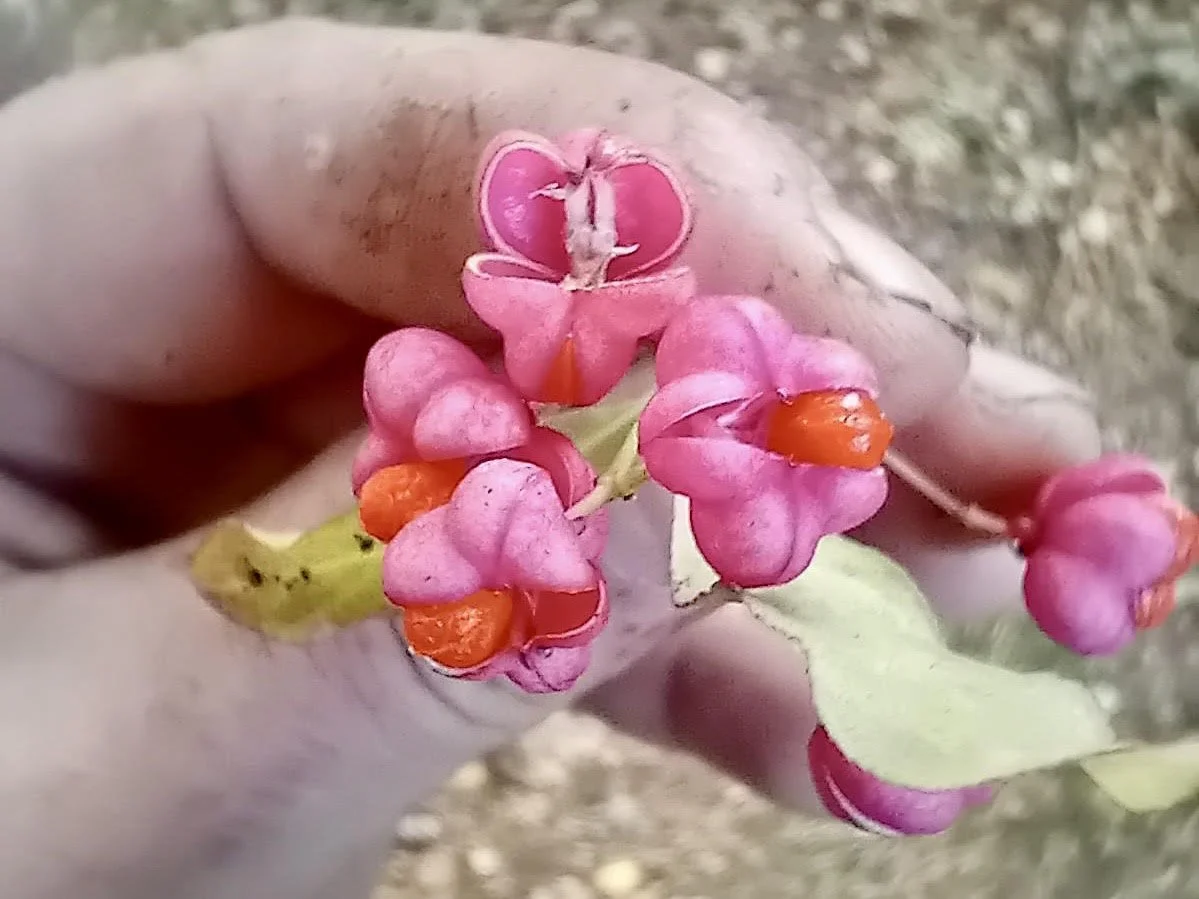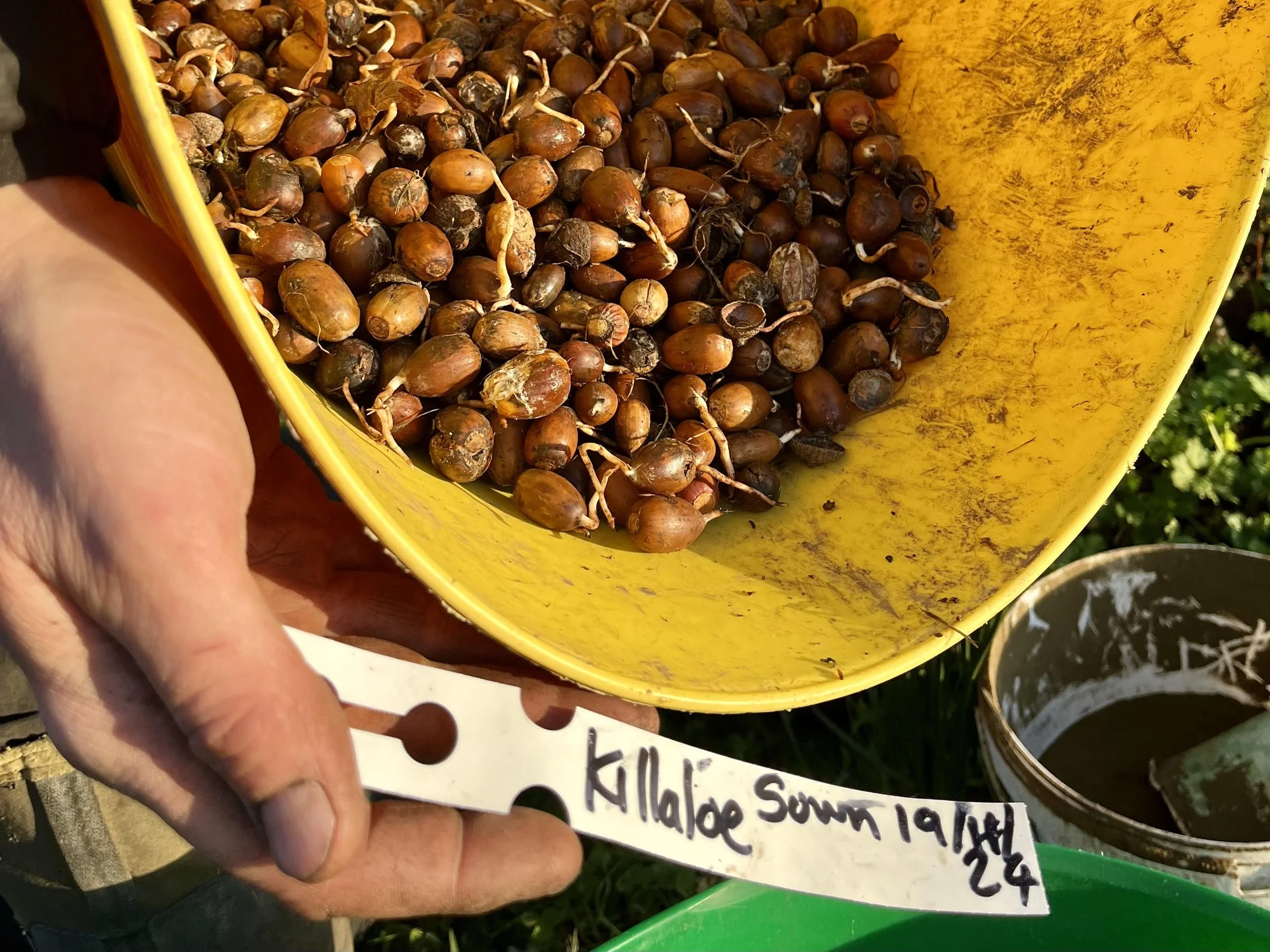Wildwood Seed Project Autumn Update
Collected oak acorns.
Jeremy Turkington, Hometree’s Seed Collector and Seed Bank Coordinator, writes about the Wildwood Seed Project and gives autumn updates on seed collection and what to expect from the season ahead.
November brings closure to what has been a spectacular autumn of immense calm and beauty. Botanically, autumn is a good time to scout for native tree species in our landscape. While the majority of native plants slide into their winter dormancy phase, seeds ripen and foliage undergoes spectacular colour changes.
Spindle seeds and seed cases.
For species that are quite nondescript at other times of year, autumn can trigger physical changes that make them stand out like beacons in the countryside. Stands of bright yellow aspen are easy to spot. European spindle, whose leaves turn a bright reddish-pink in autumn, has bright pink seed cases that open when ripened to reveal pumpkin-orange seeds that help to identify them as future seed sources.
As the daylight hours dwindle the Wildwood Seed Project’s final push to collect quantities of alder, hawthorn and holly seed is in full throttle in tandem with sowing our sessile and pedunculate oak acorns in their beds to germinate underground before spring.
Pedunculate oak acorns that were collected this year.
A rousing mid-winter task is lifting the saplings in our nursery and planting in our pre-prepared zones as seed orchards to supplement seed supply in the long term. This strategy will establish and develop a diverse range of native material adapted to oceanic and hyper-oceanic Atlantic conditions to ensure the sustainability and genetic integrity of our organic tree nursery into the long term. These seed stands include native willow stool beds, holly, spindle, wild cherry, alder buckthorn, wych elm, hazel, whitebeam, and broom.
Exciting projects in particular are our Irish aspen cuttings, which will be planted in stool beds for propagation, and our Malus sylvestris (crabapple) grafts. We have grafted 240 trees from 58 veteran Malus sylvestris trees in western seaboard counties, now these clones will be planted in an orchard to cross pollinate and supplement the seed supply for our organic tree nursery.
Our community outreach programme collaborations have led to some beautiful days and moments with people engaging in deeply tangible practical elements of working with tree seeds and planting seed orchards at our HQ site while developing the functionality and amenity value of HQ in accessing the cycles of nature and the internal clock of our own seasonality.
Hometree would like to extend thank you to Lifes2good Foundation for financial support of this project. Please note, that any opinions and ideas expressed in this article are Hometree's only and are in no way related to Lifes2good Foundation.
Holly berries.




